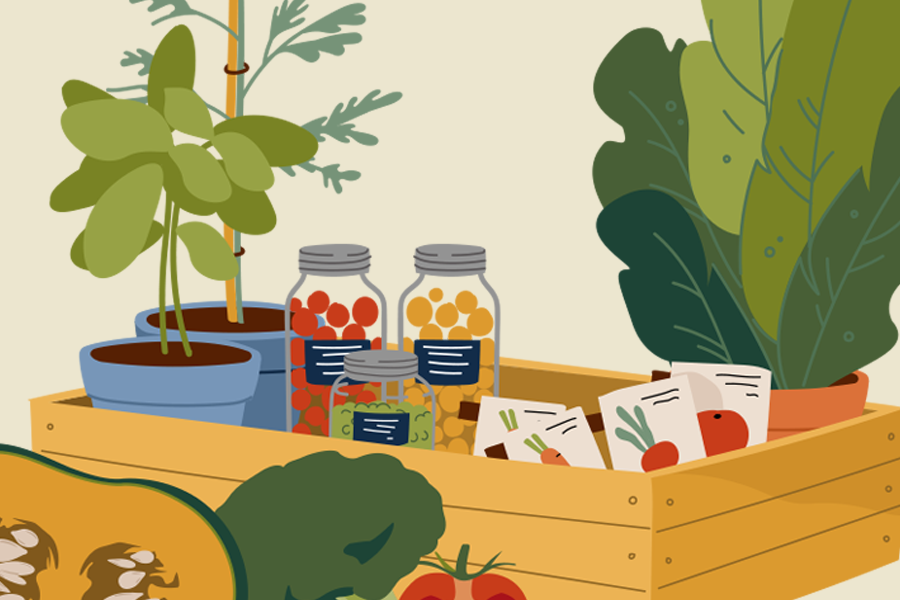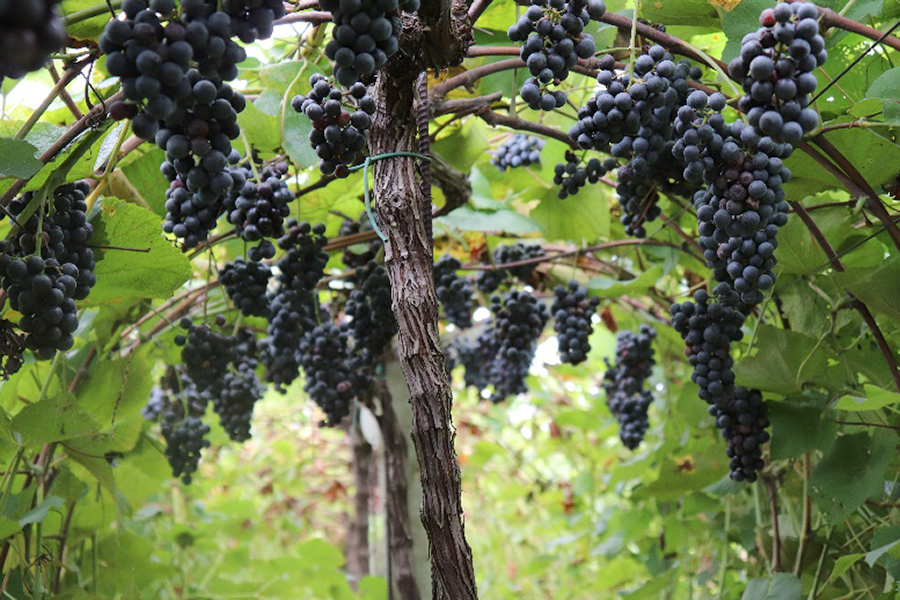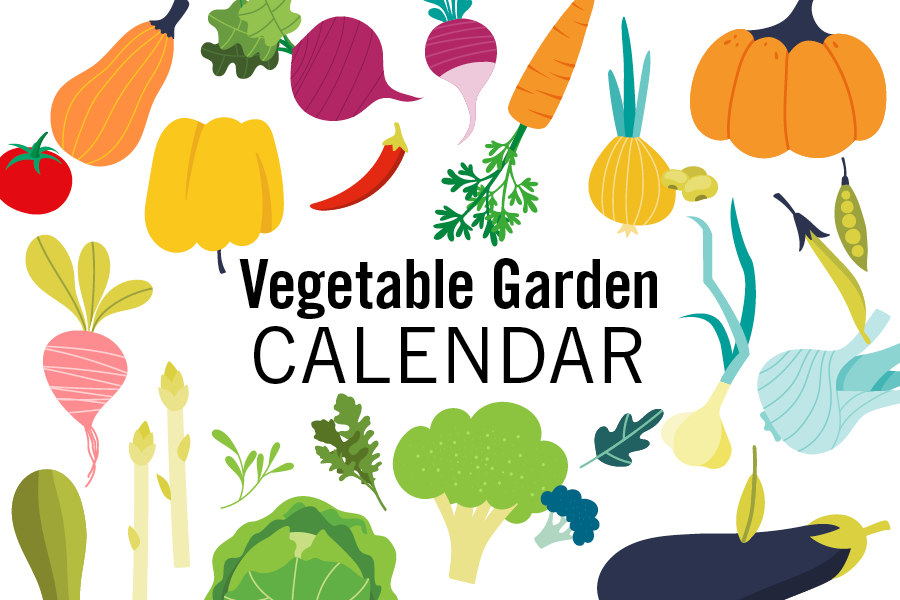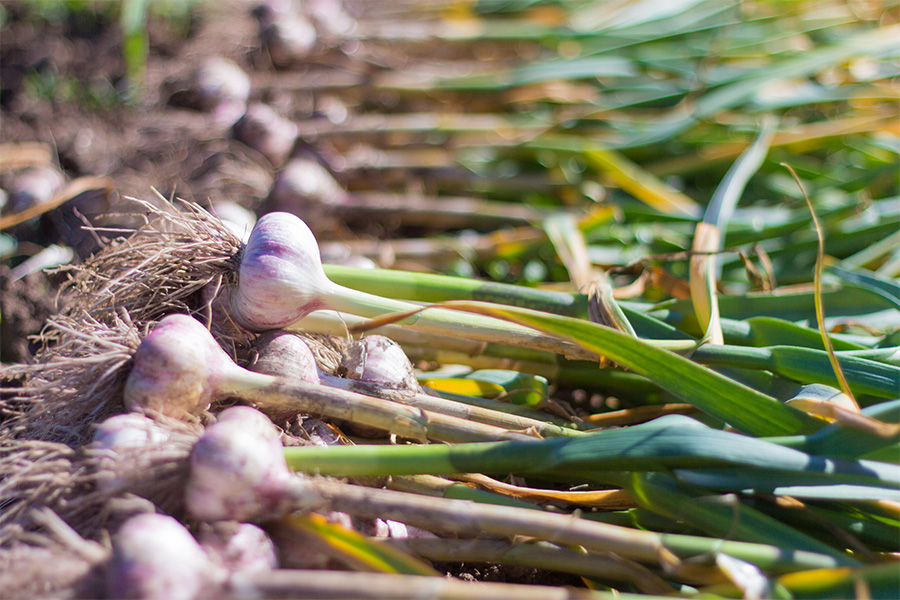Horticulture
-

This bulletin contains guidelines to determine irrigation scheduling for vegetable production in Georgia. Irrigation scheduling varies with water management and growers may require different technologies to properly manage water application. This information is supplied to help irrigation managers schedule and operate irrigation systems to optimal capacity, applying water precisely to the crop for maximum effectiveness and high efficiency.
Juan Carlos Diaz-Perez and Timothy Coolong
|
-

This resource describes the process of saving seeds, particularly for heirloom varieties in the Georgia garden. This guide is useful for both home gardens and school or community gardens.
Becky Griffin, Clark MacAllister, Ashley Hoppers, and Jacob Williams
|
-

The “Vineyard Canopy Management Series” of Extension circulars reviews a number of canopy-management practices individually. Each circular advises how to effectively implement a canopy-management practice and why it is important to do so. The practices collectively known as “canopy management” aim to maximize canopy leaf exposure, maintain crop yield and quality, decrease disease, and improve vineyard health and sustainability. Though labor-intensive, canopy management should not be considered optional if the goal is annual production of high-quality grapes and wines.
Cain Hickey
|
-

Results from this study are preliminary, as only 2 years of data have been collected. Research over longer periods of time will be more revealing about how mechanical pruning will impact the perennial crop yield and health of the vineyard. Mechanical pruning is an option for dormant pruning ‘Carlos’ in situations where labor is unreliable and/or there is a low labor-to-acreage ratio which precludes the ability to finish pruning in the dormant period (December through March).
Concerns remain regarding the inaccuracy of mechanical pruning and the resultant amount of diseased and unproductive grapevine wood that remains in the canopy. It therefore may be a good practice to manually prune blocks of the vineyard on a recurring basis in order to reduce canopy congestion and the potential for disease buildup. Mechanical pruning may not be best practice in fresh-market muscadine cultivars, particularly those that produce bronze fruit that are less tolerant of rots and defects than purple fruit.
Mechanical pruning ‘Carlos’ and ‘Noble’ vineyards is worth consideration as these popular juice muscadine cultivars are vigorous and productive and may therefore sustain perennial health under high bud densities. Because of the preliminary nature of this report, it is recommended that mechanical, or “minimal” pruning, be trialed in vineyard blocks or sections before it is widely implemented with confidence.
Alicia Holloway
|
-

This publication is an introduction to growing industrial hemp for fiber production in Georgia. While not exhaustive, it outlines some of the major production challenges in growing this crop in the Southeastern U.S.
Eric Elsner and Timothy Coolong
|
-

This report provides research and extension results for trials conducted by the University of Georgia Vegetable Team and its collaborators in 2021. Contributing authors include county and regional faculty as well as specialists from UGA’s horticulture, plant pathology, crop and soil sciences, and entomology departments. All research has been supported by the Georgia Vegetable Commodity Commission.
Timothy Coolong
|
-

Your guide to home gardening in Georgia! Our climate allows us to grow something almost year-round, and these monthly checklists will help you keep your garden working well. Planting recommendations are based on long-term average last and first frost dates for Middle Georgia; adjust accordingly for South or North Georgia.
Bob Westerfield
|
-

The Georgia Master Gardener Handbook, 8th Edition, is the official reference text produced by the University of Georgia and developed for Master Gardener training. For more information about the Georgia Master Gardener Extension Volunteer Program, visit www.GAmastergardener.org.
This book, published in 2021, is currently available at $95 per copy (including tax). Single copies (no certificate or badge included) may be purchased online with a credit card at the UGA Extension Store website. Delivery will be 7-14 business days from receipt of order. Please include a street address rather than a P.O. box. Sales of books and data are considered final. Materials returned because of damage in shipping will be replaced.
This edition was extensively revised and updated in 2021. This edition also includes an all-new guide to the Master Gardener experience.
This 8.5 x 11″ book is perfect-bound with soft cover and contains 978 pages with color photos.
Sheri Dorn and Sarah Sawyer
|
-

This guide gives gardeners tips to successfully grow garlic.
Bob Westerfield
|